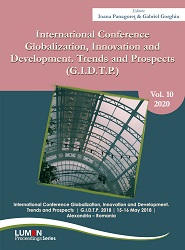Author(s): Gheorghe Sebastian Iacob,Maria-Luiza Hrestic / Language(s): English
Publication Year: 0
The human resource has come to the attention of specialists, especially those in the economic field, when it was found, both at individual and at country level, that the highest profits are due to investment in knowledge, skills, qualification and less in physical capital (machinery, construction, machines, equipment, etc.). The increasing importance of human capital is largely determined by the development of information and communication technologies and, in particular, by the transition to the “knowledge-based economy”. The theory of human capital has thus succeeded in supporting and arguing the individual's decision to continue his studies, the differentiation of salary by skill and age, the demand for educational services and medical assistance, the influence of education on growth and economic development, the transmission of economic inequalities from generation to generation, thus contributing to the establishment of educational policies and their correlation with labor market requirements. Human capital is the main wealth of society and the main factor of economic growth. Although it is known that what people produce can be gathered and multiplied, resulting in important aggregates and indices in the economic context, formal education, personal skills and health play an important role in this sense. All are essential constituents of human capital. Also, human capital theory has managed to provide arguments about the individual's decision to continue his studies, to improve educational services and health care, and much more. For society, human capital produces long-lasting economic and social effects, making it easier to move from poverty to wealth.
More...

